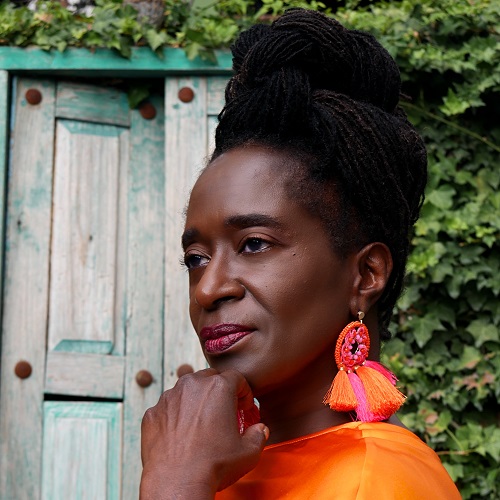When I founded Black Philanthropy Month (BPM) in 2011, my vision was simple yet profound—to shine a light on Black giving globally as an essential, yet often overlooked, cultural force for justice and change. Over the past 13 years, this movement has evolved beyond my wildest dreams, engaging 100 million people across 60 countries, earning United Nations recognition, and driving essential conversations around funding equity for Black-led initiatives worldwide. Now, as I step back from my role as BPM’s leader and chairwoman, I reflect on the journey that brought us here and the future we must boldly embrace.
A movement born of necessity
Black philanthropy is not new. It has always been at the heart of our communities, from our shared African heritage to mutual aid societies to church tithing, from crowdfunding scholarships to sustaining Black-owned businesses. We give because it’s our culture and we must, because systemic inequities have long left our communities to rely on each other for survival and progress.
Yet, despite our generosity, Black-led organizations and businesses continue to receive disproportionately low funding. In the U.S., Black nonprofits receive only 1% to 2% of philanthropic and venture capital funding, even though US Black Americans alone contribute an estimated $23 billion annually to charitable causes. The disparities are even more stark globally. This imbalance is why BPM has never been just about celebration—it has always been a call to action.
In 2020, following the murder of George Floyd and the devastating impact of COVID-19 on Black communities, BPM shifted from awareness to celebratory advocacy. That year, I authored a white paper outlining BPM’s expanded mission to ensure fair capital access for both Black nonprofit organizations and businesses. I also redesigned BPM’s historic summit. Since then, we have convened more leaders worldwide, launched the Global Black Funding Equity Pledge, and strengthened our policy initiatives. These efforts reflect a core truth: philanthropy alone is not enough—we need lasting financial infrastructure and investment in Black communities worldwide.
The next chapter: building a global black funding economy
This transition is not a departure—it is an evolution. As I pass the baton to BPM’s new international chair, Floyd Jones, I do so with confidence that BPM’s legacy will not only continue but expand. Floyd’s leadership, alongside our dedicated Global Leadership Council, will ensure BPM remains a global force for funding equity, advocacy, and empowerment.
For my part, I will continue working to advance Black capital formation through my organization, the Women Invested to Save Earth (WISE) Fund. Through WISE’s AGAPE (A Pan-African Global and Philanthropic Economy) initiative, we will cultivate funding leadership throughout the Black Diaspora and develop creative financial solutions for underfunded communities, including women, Indigenous peoples, climate innovators, and artists. I am also excited to launch AGAPE Brazil, a philanthropic and social entrepreneurship tour program that will strengthen our cross-continental funding networks.
Why this work still matters—and why now
We stand at a crossroads. On one side, we see a global resurgence of anti-Black racism, decreased funding for racial justice initiatives, and widening economic disparities. On the other, we see an opportunity—a chance to build a self-sustaining Black funding economy that does not depend on external validation to thrive.
BPM’s future is about more than raising awareness. It is about reshaping the financial landscape so that Black-led organizations and businesses have the resources they need to thrive. It is about embedding Black giving into the global consciousness, ensuring that philanthropy is not just an act of charity, but a means of justice, sustainability, and economic empowerment.
As I transition into my new role as BPM’s International Chair Emerita, my call to you remains the same: give boldly, invest strategically, and advocate relentlessly. The future of Black philanthropy is ours to shape, and I have never been more hopeful for what lies ahead.
Dr. Jacqueline Bouvier Copeland is a pioneering force in global philanthropy, social justice, and cultural arts. As a renowned social change artist, cultural anthropologist, founder of Black Philanthropy Month, and founder of the Women Invested to Save Earth (WISE) Fund, Dr. Copeland has spent her career harnessing the power of philanthropy, impact investing, and the arts to uplift marginalized communities and protect the environment. She also did the original design of ‘My Brothers Keeper’ that would go on to become a signature initiative of the Obama Administration and Foundation. Named one of the world’s Top 100 Philanthropists by Unbound Philanthropy, Dr. Copeland’s multifaceted approach has impacted countless lives across Africa, the Americas, and beyond, cementing her legacy as an innovator in sustainable social change.
CONNECT WITH BLACK PHILANTHROPY MONTH
Learn more at www.blackphilanthropymonth.com
Instagram: https://www.instagram.com/blkphilanthropymonth
Twitter: https://www.twitter.com/blackgiving365
Facebook: https://www.facebook.com/blackphilanthropymonth


Congratulations! You have built a magnificent legacy, and future generations will benefit.
Thank you for highlighting my beloved people in Brazil. Much success.
Antonia, you are a treasure and BPM wouldn’t have happened if not for the dedication of Black women of vision from around the world like you. Thanks for loving our people, humanity, and doing your best to make a better future.